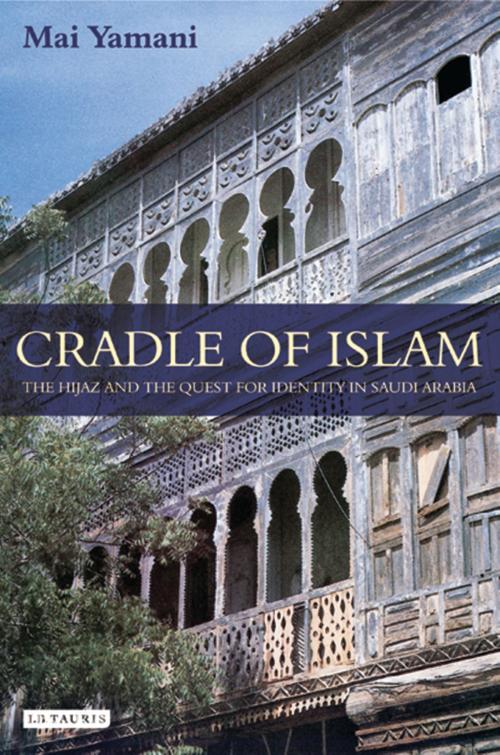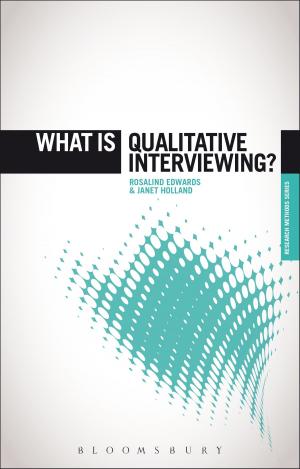Cradle of Islam
The Hijaz and the Quest for an Arabian Identity
Nonfiction, Religion & Spirituality, Middle East Religions, Islam, History, Middle East| Author: | Mai Yamani | ISBN: | 9780857731104 |
| Publisher: | Bloomsbury Publishing | Publication: | August 21, 2009 |
| Imprint: | I.B. Tauris | Language: | English |
| Author: | Mai Yamani |
| ISBN: | 9780857731104 |
| Publisher: | Bloomsbury Publishing |
| Publication: | August 21, 2009 |
| Imprint: | I.B. Tauris |
| Language: | English |
In 1932 the Al Saud family incorporated the Kingdom of the Hijaz into the new Kingdom of Saudi Arabia. The Hijazis became a people without a country of their own, who nonetheless have since retained a separate cultural consciousness. Cradle of Islam focuses on contemporary Hijazi life and culture, made subservient to the dominant national rules of Saudi Arabia, as dictated by a political and religious elite rooted in the central Najd region of the country.
The urban, cosmopolitan culture of Mecca and Medina in the heartland of the Hijaz flourished under the Hashemite 'Ashraf', particularly during Ottoman rule in the Arabian peninsula. By contrast, Saudi power has consistently pursued a national project aimed at subverting any non-Najdi regional distinctiveness. But the enormous resources of the Saudi state have been insufficient to assimilate or tame Saudi Arabia's regional cultures. The Al Saud family could dominate
but they could not integrate. Cradle of Islam is the product of in-depth research in Mecca, Medina, Jeddah, Taif and other parts of the Hijaz. It documents the Hijazi urban elites'
resistance to the Saudi national project. Set in their historical context, accounts of Hijazis' everyday life reveal their response against 'Najdification'. The Hijazis express their identity by establishing clear cultural boundaries to distinguish themselves as specifically Hijazis. The self-conscious distinctiveness and perceived superior ways of the Hijazi awai'l - the elite group of Hijazi families - constantly emphasise their identity and culture as a kind of subtle unspoken challenge to Najdi domination. Every detail of Hijazi life - rites of passage ceremonies, food, language, dress and religious rituals - become an announcement of identity. In the process this can often create an exaggerated sense of selfimportance that is laced with its own pretensions.
Cradle of Islam is based on an insider's account of the hidden world of the Hijazi. In a climate of increasing interest in Saudi Arabia, this extraordinarily original book makes a crucial contribution to a better understanding of the dilemmas facing the Saudi state.
'My father was born in Mecca and much of what I have read here reminds me of
my father, grandfather and relations. Mai Yamani has provided us with a unique
perspective on the Hijaz. This is an invaluable contribution to the social and
political history of a hitherto largely unknown, ignored and unrecognised people.
An irrefutably powerful argument for the preservation of cultural identity, respect
for human dignity and a celebration of our human diversity.'
- HRH Prince Hassan of Jordan
'Mai Yamani is consistently the sharpest observer of modern Saudi Arabia and paints a vivid picture of the cauldron of political and religious divisions that are tearing it apart. This is a major contribution to the study of Arab diversity – at a time when the West urgently needs to understand it.' - Tim Sebastian, BBC Hard Talk
'A vivid and vibrant picture of Hijazi society and its transformations in the twentieth century, from intimate domestic culture to public performance and political ritual. A particular insight into female society and its active culture.' - Sami Zubaida, Professor of Sociology at Birkbeck College, University of London
'Dr. Mai Yamani's book is a real delight. She penetrates the external Saudi covering layer, to reveal the Hijazi socio-cultural existence, and its customs and social structure in vibrant colours. Her analysis is descriptive interpretation at its best.' - Joseph Kostiner, co-editor of Tribes: State Formation in the Middle East
'Mai Yamani's book is a very rare thing. A detailed, informative and rigorous investigation into the most important but understudied country in the Middle East: Saudi Arabia. Yamani's book should be required reading for anyone trying to understand the evolution of Saudi Arabia, its place in Middle Eastern politics and why it has come to play such an important role in the international politics of the post-Cold War era.' - Toby Dodge, Senior Research Fellow, University of Warwick; Senior Consulting Fellow, International Institute for Strategic Studies, London
In 1932 the Al Saud family incorporated the Kingdom of the Hijaz into the new Kingdom of Saudi Arabia. The Hijazis became a people without a country of their own, who nonetheless have since retained a separate cultural consciousness. Cradle of Islam focuses on contemporary Hijazi life and culture, made subservient to the dominant national rules of Saudi Arabia, as dictated by a political and religious elite rooted in the central Najd region of the country.
The urban, cosmopolitan culture of Mecca and Medina in the heartland of the Hijaz flourished under the Hashemite 'Ashraf', particularly during Ottoman rule in the Arabian peninsula. By contrast, Saudi power has consistently pursued a national project aimed at subverting any non-Najdi regional distinctiveness. But the enormous resources of the Saudi state have been insufficient to assimilate or tame Saudi Arabia's regional cultures. The Al Saud family could dominate
but they could not integrate. Cradle of Islam is the product of in-depth research in Mecca, Medina, Jeddah, Taif and other parts of the Hijaz. It documents the Hijazi urban elites'
resistance to the Saudi national project. Set in their historical context, accounts of Hijazis' everyday life reveal their response against 'Najdification'. The Hijazis express their identity by establishing clear cultural boundaries to distinguish themselves as specifically Hijazis. The self-conscious distinctiveness and perceived superior ways of the Hijazi awai'l - the elite group of Hijazi families - constantly emphasise their identity and culture as a kind of subtle unspoken challenge to Najdi domination. Every detail of Hijazi life - rites of passage ceremonies, food, language, dress and religious rituals - become an announcement of identity. In the process this can often create an exaggerated sense of selfimportance that is laced with its own pretensions.
Cradle of Islam is based on an insider's account of the hidden world of the Hijazi. In a climate of increasing interest in Saudi Arabia, this extraordinarily original book makes a crucial contribution to a better understanding of the dilemmas facing the Saudi state.
'My father was born in Mecca and much of what I have read here reminds me of
my father, grandfather and relations. Mai Yamani has provided us with a unique
perspective on the Hijaz. This is an invaluable contribution to the social and
political history of a hitherto largely unknown, ignored and unrecognised people.
An irrefutably powerful argument for the preservation of cultural identity, respect
for human dignity and a celebration of our human diversity.'
- HRH Prince Hassan of Jordan
'Mai Yamani is consistently the sharpest observer of modern Saudi Arabia and paints a vivid picture of the cauldron of political and religious divisions that are tearing it apart. This is a major contribution to the study of Arab diversity – at a time when the West urgently needs to understand it.' - Tim Sebastian, BBC Hard Talk
'A vivid and vibrant picture of Hijazi society and its transformations in the twentieth century, from intimate domestic culture to public performance and political ritual. A particular insight into female society and its active culture.' - Sami Zubaida, Professor of Sociology at Birkbeck College, University of London
'Dr. Mai Yamani's book is a real delight. She penetrates the external Saudi covering layer, to reveal the Hijazi socio-cultural existence, and its customs and social structure in vibrant colours. Her analysis is descriptive interpretation at its best.' - Joseph Kostiner, co-editor of Tribes: State Formation in the Middle East
'Mai Yamani's book is a very rare thing. A detailed, informative and rigorous investigation into the most important but understudied country in the Middle East: Saudi Arabia. Yamani's book should be required reading for anyone trying to understand the evolution of Saudi Arabia, its place in Middle Eastern politics and why it has come to play such an important role in the international politics of the post-Cold War era.' - Toby Dodge, Senior Research Fellow, University of Warwick; Senior Consulting Fellow, International Institute for Strategic Studies, London















